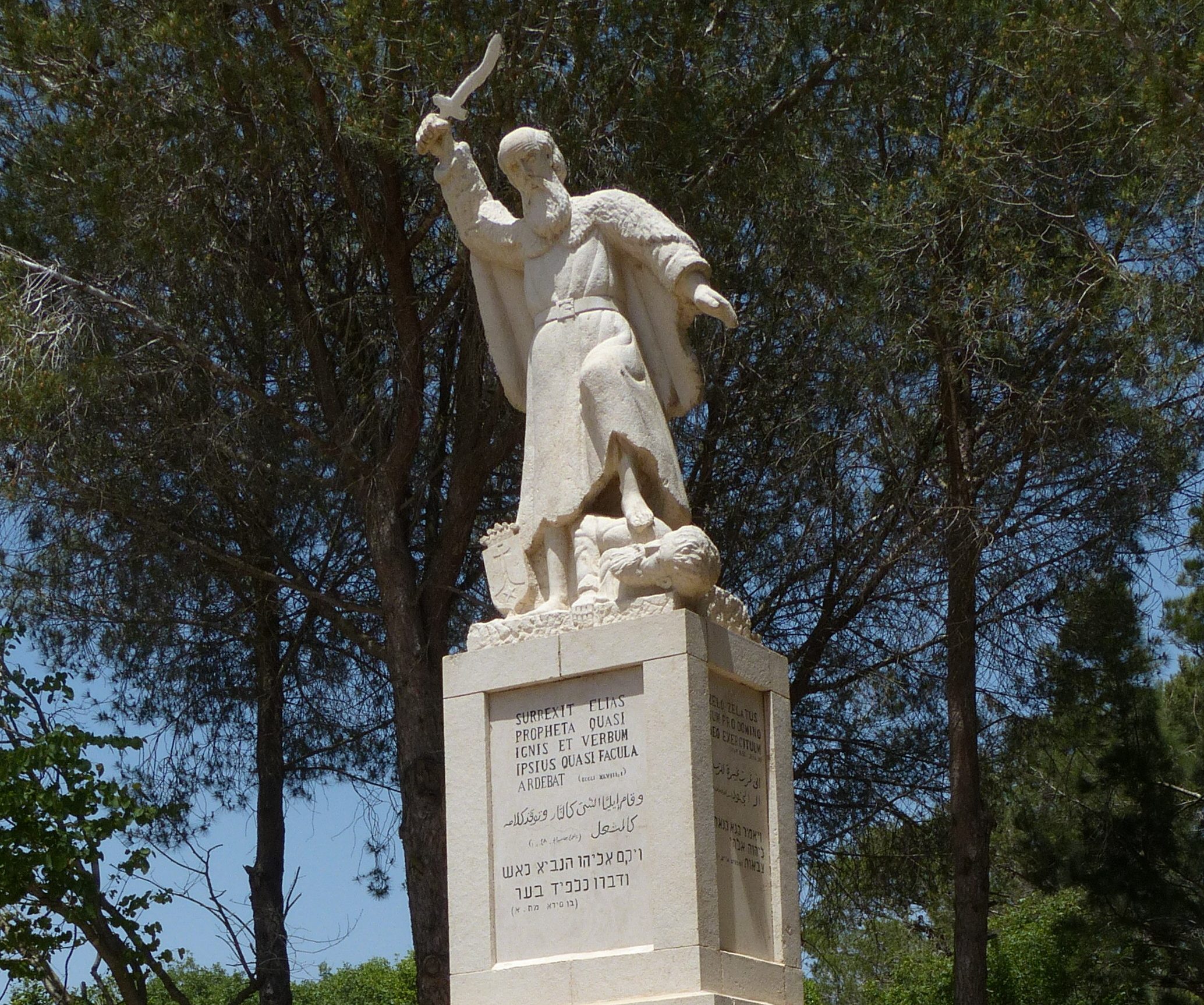Why I am a transferist1
The charismatic world assumes that the special gifts of the Spirit that God gave at the beginning of Christendom still exist and that we should exercise these gifts. But the question, of course, is whether this is really what the Bible teaches.
The 'cessationism' and the 'continuationism'
The English word "cessationism" is derived from "cessation" which means to cease, to terminate. There is no nice Dutch word for it, so let's just keep talking about “cessationists”. Cessationism is the belief that the supernatural spiritual gifts of the New Testament, such as speaking in tongues, prophecy, the gift of healing, and the transmission of gifts through anointing are no longer active. Just as there are no more apostles and prophets, these special gifts are no longer part of the work of the Holy Spirit in the Church.
In contrast, there is an increasingly postulated view that the spiritual gifts of the New Testament have never ceased or been reinstated in the church history of the last century. This view is usually referred to by the word “continuationism”, which includes the English word “continuation”.
Arguments back and forth
In general, the arguments of the continuationists fall into four groups.
- You often hear it said that the New Testament nowhere clearly states that the gifts of the Spirit would ever cease in the history of the Church. Cessationists then answer that it is nowhere explicitly stated that the gifts will continue.
- When cessationists say that the New Testament also nowhere says that the gifts will continue, a text from 1 Corinthians 13 is often quoted:when that which is perfect shall come, that which is in part shall be made void.The perfect, say continuationists, is the return of Christ. So the gifts will be in effect until He comes. Cessationists throughout the ages have held that the gifts of the Spirit are in effect until the perfect, that is, God's Word in the New Testament, is completed. In other words, the closing of the Canon – the end of the Apostolic Age – is the historical point where the Spiritual Gifts begin to disappear.
- Continuationists argue that the division between the Apostolic and post-apostolic times in church history is an artificial one. Cessationists object that there are no apostles like Peter and Paul after all. When continuationists admit this, at least as far as apostleship is concerned, they have actually become cessationists, because they are thereby saying that there is a difference in church history between a time when the apostles do and a time when the apostles no longer have – directly – authority in the church. to have.
- The most common thought in favor of the charismatic movement is an argument from experience. There are now 500 million Charismatic Christians in the world. It is inconceivable that such a large number of Christians could be wrong. Cessationists counter that using this same argument all miracles of the Roman Catholic Church should be accepted - after all, there are 1 billion Roman Catholics in this world. Can they all be wrong?
I am a cessionist because I cannot find any value in the arguments organized into these four groups. I believe that the Holy Spirit no longer dispenses to individual believers the miraculous spiritual gifts that we find in the first century church. But I also think that what is released today as a modern variant of those same gifts, on closer inspection, does not resemble the original Spirit gift at all. Both the power, the content and the function of the so-called spiritual gifts in the present are completely different from those in the New Testament.
Function of the Spiritual Gifts
My first major argument in support of cessationism, then, is a closer understanding of the function of the signs and wonders associated with the gifts of the Spirit in the New Testament. It is often claimed that the gifts of the Spirit are an abiding part of the gospel. The gospel would then want nothing more than to bring the unbelievers to repentance by speaking in tongues, and to present the power of God's Kingdom with healings. The title of the conferences of the Evangelical Working Company is therefore “There is More!” The spectacular manifestations of the Spirit are then the content of this “lake.” Words of knowledge and wisdom, prophecy, healings, and to a lesser extent speaking in tongues are the intended purpose of these conferences. The signs and wonders are seen functioning as an expression of the power of the Kingdom of God. They belong. The living church that obeys the Holy Spirit may have to take these signs and wonders for granted. Don't be surprised anymore – said Hans Maat during the last conference under this title in 2018.
Which brings us to the first important point: the unique function of miracles in the Bible.
Miracles
Miracles and signs have always been used by God in limited periods to confirm a turn in the history of salvation.
It is important to realize that there have been only three periods in history when God has emphatically reinforced His revelation with miracles. That is, three periods in which God has bestowed upon men this special power for the purpose of confirming the authority of those men as His servant and prophet. (So we are not talking about God's miraculous operation in history, as long as it is not connected with the ministry of a man chosen by God.)
- The first period is that of Moses and Joshua, roughly between 1445 and 1380, about 65 years. During that period, there is a great variety of miracles, all associated with a special authority that God wanted to bestow on Moses and Joshua. The miracles at the court of Pharaoh, for example, and as a miraculous act of liberation, the separation of the waters in the Red Sea. That this is a power that was assigned to Moses as a person is clearly visible from the history of the water from the rock, with which Moses especially had his own glory in mind, which is the reason why God did not give it to him. allowed to enter the promised land.
- The second period in which miracles seemed to be self-evident and connected to the person of the prophet, we find in the ministry of Elijah and Elisha. Then we are talking about a period between 860 and 795, so also about 65 years. By the way, I think that such a 65-year period was not chosen by chance by the Lord, because it means that there are at least three generations who could take cognizance of it.
- A third period in which miraculous signs took place was, of course, the time of the New Testament. That started with the baptism of the Lord Jesus in the Jordan and ended at the latest with the death of the apostle John, so a maximum of 70 years.
Please understand what I mean. I am not saying that God did miracles only in this period. Think of the redemption of the people of Israel in the time of Esther, or the miracle by which Daniel and his three friends were saved from death. But these were not miracles placed in the hands of someone who had received the gift of miracles - or of tongues, or of healings, or of words of knowledge et cetera. For that is the main difference from the modern version of this gift, that there was an "anointing," an "impartation" or transfer of a gift from one to another. This is one of the pillars of Randy Clark's vision that we have written about on this site before (see, among others here).
There are only three periods in the Bible - each of 65-70 years - in which miracles and signs from God were confirmation that the servant was sent by God and spoke on His behalf. This is quite different from what is said about "miracles and signs" today.
As for the period of Moses and Joshua, the biblical text clearly states why miracle-working is personally associated with Moses. When Moses is sent to Pharaoh's court, he says to the Lord, “Behold, I am not eloquent. Then why should Pharaoh listen to me?” (Exodus 6:29). Then we hear of the function of God's miraculous acts: “I will multiply my signs and wonders in the land of Egypt” (7:3). That is what God sovereignly performed miracles to confirm the authority of Moses. But then in verse 8 comes the miraculous sign that is connected to the person of Moses. “When Pharaoh says to you, Show a miraculous sign, then you shall say to Aaron, Take your rod and cast it before Pharaoh; then he will become a serpent.
The function of the wonders and signs in the time of Moses and Joshua was emphatic confirmation of the authority of Moses. If not for Pharaoh, then for Israel.
In a similar way the authority of the prophets was confirmed. In Deuteronomy 18 we find the institution of the prophet, who in the first instance turns out to be Joshua. In the time of Moses, however, prophets were active as shown at Numbers 11:29. It was important to have the criteria to distinguish the true prophet from counterfeit. Deuteronomy 13 gives us three criteria.
When the prophet announces a sign or a wonder, then the sign or wonder must also come to pass. (In Numbers 11, Moses as a prophet gave an unbelievable prediction about the amount of food the people would receive, which was confirmed by the Lord.)

Then when the sign or wonder happens but the prophet calls to serve other gods, then that prophet is not to be listened to, then it is a test of the Lord.
Very generally, the words of the true prophet are always backed up with miracles—if only the miraculous of an impossible prediction.
The same thing happens with Elijah and Elisha.
And when we arrive in New Testament times we see the same pattern. The Lord Jesus brought a new and final revelation. And then we see emphatically in the gospel to John the connection between the miracles and signs of Jesus and the necessity of their confirmation of His status. Just look at John 5:36.
“But I have a testimony greater than that of John; for the works which the Father hath given me to perform, the very works which I do, bear record of me, that the Father hath sent me.”
Or John 10:25 and 26:
“Jesus answered them, I have told you, and you do not believe; the works that I do in the name of my Father, they testify of me; but you do not believe, because you are not of my sheep.”
So the miracle signs are not just a part of the gospel as is sometimes claimed by continuationists2. The healings of Jesus, as well as the resurrection of Lazarus, are signs to show that Jesus was truly sent from the Father. Moreover, it is such signs that should strengthen the faith of the disciples rather than convert unbelievers. The healing of the paralytic in John 5 does not bring about repentance. And Jesus says elsewhere that even if one were to return from the dead, they would not believe if they already did not believe Moses and the prophets. So the miracles even of Jesus have only the status of confirmation, they are signs of the kingdom, but not the expression of the presence of the kingdom. I really can't say that often enough.
Spiritual Gifts: Ended with the End of the Apostolic Age
The same function for miracles and signs also played a role with the apostles. Paul's healing of the paralytic in Lystra in Acts 14 is in support of his call to repentance. Here again we must understand the importance of the miracle sign when we read that the men of the city believed they recognized Greek gods in Barnabas and Paul. The priests of Zeus even wanted to sacrifice bulls to Paul and Barnabas. The payoff for the miracle sign Paul performed was that he was stoned to death at the intercession of the Jews and left for dead outside the city. Perhaps the true miracle is that presumably after the prayers of the congregation, he was able to rise again so quickly and continue on his way.

The discussion between continuationists and cessationists is of course about the question, whether the Spirit gifts still existed when the apostles were no longer there. Cessationists make the following argument for this. It is important to state up front that the apostle is one of the gifts that Christ gave to His church. 1 Corinthians 12:28 speaks of the apostles and prophets as a gift from Christ to the church.
Those apostles and prophets are then in a list of various gifts among which are also mentioned teachers, miracles, gifts of healing and so on. The apostle is nothing but a part of that greater diversity of members of the church to which the Holy Spirit has bestowed a unique gift. Both sides agree - except for some extreme groups - that the gift of the apostles was undoubtedly a temporary gift. There are no more apostles like the 12 are, or like Paul. There is a general usage of the word apostle, in which any believer can be called an apostle, a representative of Christ. But that is not the meaning that word has in the text of 1 Corinthians. An apostle in the full sense of the word had to meet three conditions:
- an apostle had to be a witness of the risen Christ
- an apostle had to be personally appointed by Christ—so was Matthias who was chosen by lot.
- an apostle must have been given the authority to work miracles - compare Matthew 10:1, 2 where the disciples, that is, these 12, receive from the Lord "power over unclean spirits" "to cast out and to cast out all sickness and every disease." to cure."
And then it is striking that in 2 Cor. 12:12 expressly establishes a connection between being an apostle and performing miracles. “The signs of an apostle have been performed among you with all perseverance, by signs, wonders, and powers." These "signs of an apostle" can be nothing but the miracles and signs that the Lord God had given to confirm the authority of the apostles. Now it is the church built on the foundation of the apostles, and the prophets of the New Testament.
Summarizing
Now if we summarize all this data. The church is built on the foundation of Apostles and prophets. The authority of the Apostles is established by wonders and signs that have followed their preaching. But the goal was to be a foundation that didn't need to be laid over and over again. And then the wonders and signs that followed the preaching of the apostles were also only meant to establish the foundation of the church. Then the miraculous gifts were only meant to lay this foundation, and not to be a permanent part of the growth of this building.
Continuationists will say that the church is built on the foundation of the apostles and prophets of the Old Testament. That would leave room for New Testament prophets of a different status, ultimately also confirming that imperfect prophecy may exist in our time. It seems clear to me that in Ephesians 2, by the word prophets, Paul meant the prophets of the New Testament, as appears from 3:5, where we read, “as it has now been revealed by the Spirit to the saints, his apostles and prophets…The church as the great secret of God's plan of salvation may have been foreseen in the texts of the prophets, but that does not make those prophetic references the foundation of the church. So it must be about the prophets of the New Testament.
Gifts different now than back then?
Cessationists claim, moreover, that the miracles and signs of New Testament times differ in content from what is understood by the Spirit gifts today. At stake is the character of the Spirit gifts in the New Testament compared to the exercise of those gifts in our day. A continuationist does have to claim that the gifts in the New Testament have continued to this day, because he thinks they are one and the same gift. If one claims that something is happening now that is different from what happened then, so much so that nothing is happening now that was happening then, that is actually what a cessationist claims. Let me suffice with a little summary:
Healing
The gift of healing exercised by Jesus or by the Apostles, or by persons appointed by the Spirit, involves complete, immediate, supernatural and absolutely indisputable healing. The examples from the book of Acts show this very clearly.

A so-called "gift of healing" which does not lead to a complete, immediate, supernatural and indisputable healing is nothing but a prayer for healing, which may or may not be answered by the Lord. But then there is no question of a “gift” of healing.
Languages
The gift of speaking in foreign tongues unlearned involves a complete, immediate, and perfect mastery of another human language, through which the preaching work can be understood by people of that other language region.
The so-called glossolalia, or Tongue Language, is rather a personal tongue, and imitation of language, serving some meditative purpose. Even if it were a charismatic gift, it is certainly not the same as that of the New Testament. It is clear from the description of the Pentecostal miracle in Acts 2 and 10 that the disciples began to speak in foreign languages that could be experienced by the Jews present, gathered from all over the world, as their own language or dialect. In any case, the ecstatic expressions of the modern charismatic movement do not correspond to this. Moreover, 1 Cor. 14 clearly that the purpose of the gift of tongues was to build up others in the faith in their own language, but it also required someone to translate into the Greek of the majority in the congregation. A private prayer language is not a gift; but it is a gift to speak in a foreign language that you have not learned.
At the beginning of the Pentecostal movement there is still this amusing confusion, when a young woman gave signs of spontaneously speaking Chinese. In his enthusiasm Parrham after some time gave orders to those who had meanwhile learned to speak in tongues, to undertake missions in the lands where it was suspected that the Holy Spirit would still bestow the proficiency of language. It was the first bitter experience in Pentecostalism, which should have been thought-provoking, that not one of these sent out missionaries with this gift of the Spirit proved able to really speak another language. Instead of abandoning the idea, they managed to adapt it in such a way that the phenomenon was nevertheless confirmed. Namely, by saying that people had not learned languages from men, but from angels. And that the function of those languages is not, as was in the New Testament, the spread of the gospel, but that it was a miracle sign to convince the church of God's nearness and power. Or, later still, that it was a private prayer language.
Prophecy
So it is with the gift of prophecy. In addition, we must immediately note that the concept of prophecy in itself has a sliding scale. It should be understood in the first place as anyone who speaks the words of God which God has given him. That applies specifically to the prophets of the Old Testament, but also to those of the New Testament, and actually also to all those who speak God's words in some kind of derivative sense, because they explain God's Word in their own words - preachers or teachers. . The context should therefore make clear what we mean by it specifically. Old Testament prophets, as well as early church prophets, are expected to transmit directly, immediately, and unerringly the revelation of God. The criteria of Deuteronomy 18 and Numbers 11 apply to all of them.
Quite different, however, is the prophecy in the Charismatic movement. Whoever cannot say, "Thus saith the Lord," or according to Acts 21:11, "This is what the Spirit saith," is not a prophet. The prophets in the charismatic movement can only say, "I think the spirit might say this." But that's not a prophecy! That is not a gift of revelation and certainly not a supernatural phenomenon.
What is seen today as 'miracles and signs' of the Spirit is quite different from the 'miracles and signs' that were done in the early days of the Church.
Is it from the Holy Spirit?
Continuationism therefore also holds that the modern exercise of the gifts does not correspond at all to the description and function of those gifts in the New Testament. But then the question is what would actually be “continued” here, as the continuationists believe. Is there not rather an entirely new phenomenon, of a non-verbal, irrational, emotional and mystical elevation to God, which bears much more resemblance to ecstatic pagan religions than to the sobriety of Christian revelation?
Ultimately, I think the charismatic version of the Spirit gifts is not a tribute to the Holy Spirit. The exegesis of the script is not balanced and convincing; the phenomena within the charismatic gatherings bear little resemblance to the gifts of the Spirit in the New Testament. Both the function and the content differ. But the attention to the spectacular supernatural gifts, exercised simultaneously with such spiritual poverty and with such a hunger for spectacle, for more, rather than for the quiet presence of the Holy Spirit, will seduce many people. In doing so, the actual and greatest miracle of the Holy Spirit is in danger of being overlooked. The wonderful work of divine grace in the heart of a dead sinner, brought to life by the life-giving Word of God. I think that is the great work of the Spirit, of which we have more than enough.

